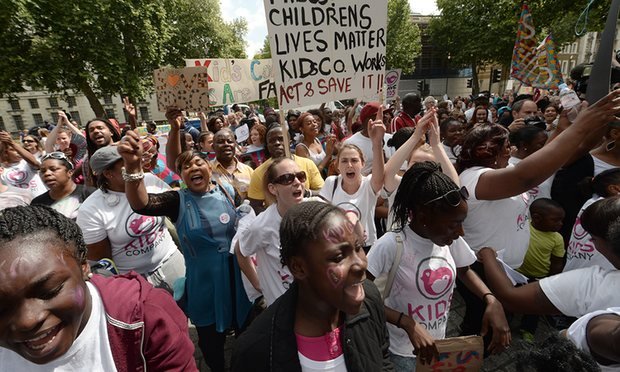Trust in charities is at an all-time low. Time to change
Charities are vital to society. Our research shows that the public still believe that. But public support cannot be taken for granted.
The research shows that trust and confidence in charities has fallen to the lowest recorded level since monitoring began in 2005 – from 67% to 57%. This is a wake-up call for everyone who supports charity work in this country.
Poor fundraising practice, inappropriate data sharing, damaging commercial relationships, the high-profile collapse of Kids Company, have all combined to knock the public’s confidence in charity.
New regulator to put charities in order
Read more
There is some good news. The fall, which represents about a 15% decline, is not as bad as some had feared. Despite the lurid headlines of the past 18 months, a majority of the public still have confidence in charities. The most recent data suggests donations are holding up and record numbers are volunteering.
But charities need to do a lot to rebuild the public’s trust. Large charities have most to do. Our research shows that smaller charities enjoy higher levels of trust than their bigger counterparts.
Charities need to earn the right to be heard again. Until this happens, they will not enjoy the benefit of the public doubt. Running a large charity is complex. As long as there is a cloud over the sector, charities will struggle to be persuasive over high salaries for high-skilled staff, seemingly large fundraising costs and low charitable expenditure.
Saving to invest in a new lifeboat or children’s hospital may be the best way to advance a charity’s objectives, but conveying this nuance will be hard as long as the public are sceptical.
The public wants to see charities account better for how they spend their money, they want to see ethical fundraising, and they want to know that charities are making a positive difference to their causes. The more people know about the good work of individual charities, the more their trust and confidence in charities generally increases.
Some charities have already begun to address the decline in confidence. They have altered their approach to fundraising, including moving to “opt-in” models to engage with donors. Most are supporting the new fundraising regulator soon to be launched by Michael Grade. The national umbrella group, the National Council for Voluntary Organisations (NCVO), is working with charities to help them demonstrate the impact of what they do.
Charities need to win back public trust
Read more
The Charity Commission, as regulator, will play its part. We have a statutory duty to increase public trust and I take this very seriously: we know that the bad actions of a few charities can affect the way all charities are viewed.
Advertisement
As well as promoting our guidance to trustees, we use our limited budget to focus on compliance and rooting out abuse and bad practices to ensure the majority are not tarnished. Our research shows that the public’s confidence in charities is boosted when they see the regulator taking action.
We have been given new powers under the recently passed Charities Act. These will allow us to take proportionate action more quickly against the few who let the sector down.
There is a limit, however, to what regulation can achieve. We need to see a change in culture. Although most charities have not been engaged in the malpractice exposed over the past 18 months, the revelations struck a chord. The public, parliament and parts of the media feel the increasingly corporate appearance and operations of large charities do not always reflect philanthropic values. Of the public, 74% say some fundraising methods make them feel uncomfortable. This discomfort has been rising since 2010.
Austerity has certainly been a challenge. Charities now have to compete for increasingly scarce resources. Individuals, particularly fundraisers, can feel pressured to get results. But it is the duty of trustees to ensure the methods used are entirely proper.
The rewards of being a charity – tax breaks and gift aid – bring with them a special duty. Charities must conduct themselves in line with their values, otherwise public scepticism will continue to rise. I understand this can seem a burden to charities that are working hard to help their beneficiaries. The future of all charitable work, however, depends on the public trust.
Charities represent cherished virtues: self-sacrifice, love and care for those less fortunate. With effective action, the public will see this again, and trust will be enhanced. Our research should be taken as a call to arms – the work of charity is too important for anything else.
